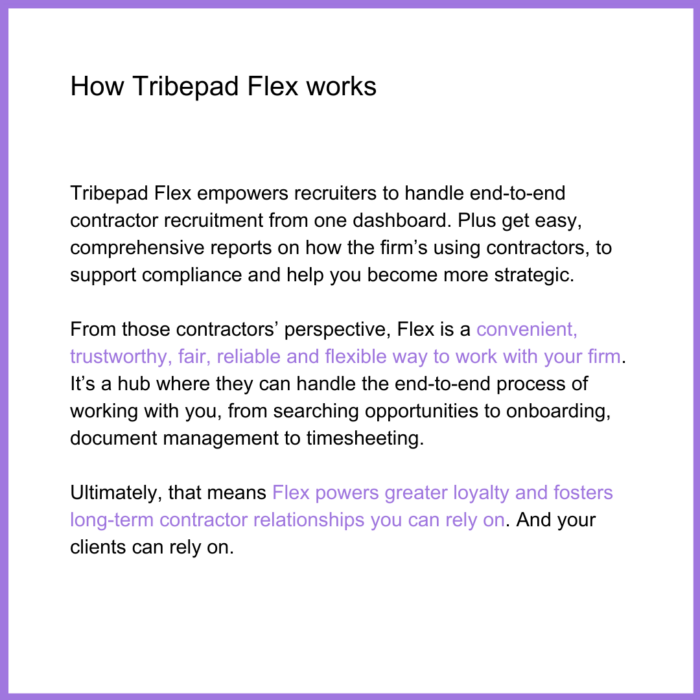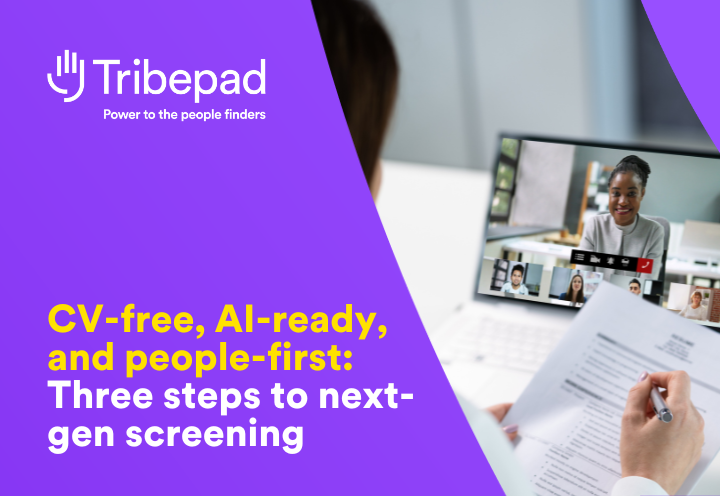Law firms’ success hinges on the strength of your client relationships, today more than ever. But clients increasingly expect more than many firms are giving.
Firms that don’t evolve to deliver more value will feel the strain in falling PEP and shrinking profitability. (The writing’s on the wall. PwC’s Law Firms’ Survey 2020 reports net profit margins amongst top ten UK firms have been declining since 2014.)
Keep reading to learn why transforming the firm’s value for clients starts with transforming the workforce. And map your path to harnessing a major emerging talent pool more strategically – to empower the firm to become truly client-centric.
A seismic power shift towards clients
The global financial crisis of 2007/8 caused what BDO call “a seismic shift in the relationships between law firms and their clients”. “A clear shift in power and control towards the client”.
Fifteen years on, that power balance hasn’t shifted back. Clients are in the driving seat – and fierce competition means they have plenty of options for legal services.
As Thomson Reuters observe, “longer-term, law firms likely need to win market share from rivals, rather than rely on the size of the market increasing as a source of growth”.
In this landscape, firms that offer a purely transactional service enter a race to the bottom that spells disaster. As BDO put it, firms must shift from being “just a service provider” to “an integral part of the team”.
The pandemic has only turned the screw further, increasing financial pressure and placing a higher premium on empathetic, consultative partnerships.
Firms that don’t prove robust value won’t be kept around long. But the truth is, many firms aren’t keeping pace with client expectations.
Industry powerhouse Mark Cohen talks about how the legal industry is misaligned to client demands. Especially compared to business-world pioneers that have “scaled, refined, and reinforced market advantage by a relentless focus on the customer”.
For Mark, the legal sector “is struggling to keep pace with the speed of business as well as to satisfy clients”.
To overcome that two-part challenge, firms must move away from the traditional model that’s “built to serve lawyers”. Instead embracing a new model that recognises clients as customers. Based on “customer-focused, data-based, multidisciplinary, agile, scaled delivery of legal services”.
Major transformation is needed to drive that shift – across many dimensions, but especially workforce transformation.
Workforce transformation drives value transformation
As law firms evolve, this emphasis on customer-focussed, multi-disciplinary, agile, scalable delivery is driving a heavier strategic reliance on contractor legal services. COVID has only accelerated Deloitte’s prediction – that by 2025, transient workers would be one of three major talent pools dominating law firms.
Harnessing legal talent through a more flexible hiring model makes sense for a whole heap of reasons. Like:
- Build muscle in high-priority skills areas, to respond to client needs faster
- Increase your capacity to scale, supporting clients’ growth
- Widen your talent pool, improving diversity of background and skills
- Streamline staff costs, hiring flexibly on an as-you-need basis
- Ease staff workloads, boosting engagement, productivity and retention
- Bolster your employer brand by supporting flexibility (read more)
Of course, mobilizing non-traditional talent isn’t the only answer to the legal profession’s challenges.
As Mark puts it, transformation “involves challenging the continued efficacy of [law’s] sacred cows – delivery structures, models, customs, processes, mindsets, metrics, reward systems” as well as workforces.
But it’s a powerful starting point. The only sensible starting point, actually, given the success of any transformation project depends on the people who’ll implement it.
So now the question becomes – what’s your strategy for working with contractors?
The next evolution for legal recruitment
To harness the contingent workforce to drive legal transformation, ad-hoc tactical recruitment won’t cut it. Without a robust contractor recruitment strategy, you’re taking a heap of unnecessary risks. (And spending an unnecessary fortune with agencies).
Risks like:
- Will contractors be the best representative of your firm, if they’ve had an inconsistent, unconsidered contractor candidate experience?
- Will ad-hoc contractors deliver the best service for clients, compared to reliable, loyal contractors you trust time and again?
- Will clients be willing to invest a premium with your firm, if you aren’t seen to have your own house in order with robust processes and compliance?
For several years, most firms have recognised recruitment as a value-driver not a fee-burner. That attitude has translated into growing investment and modern recruitment tech. But most often, this technology focuses purely on the permanent workforce.
The next evolution is contractor management software, to power strategic recruitment of everyone the firm’s future success depends on. Not just traditional employees.
Supported by a single system to hire, onboard, manage, review and oversee compliance for legal contractors, firms can unlock the full potential of the flexible workforce and contractor legal services offered.
And move towards the delivery model the future demands: one that’s customer-centric, agile and scalable.
Embed strategic agility at the firm’s core
Law firms are undergoing a period of urgent transformation – or urgent decline. Survival hinges on whether the profession can take a leaf from the world of business’ book and embrace a truly customer-centric business model with agility at its core.
Flexible workers are the lynchpin, empowering firms to meet customers’ changing needs faster. But to effectively harness the flexible workforce, legal recruiters need a focussed and strategic approach to recruiting and managing contractors. And the technology to support it.





